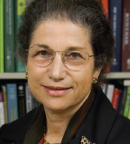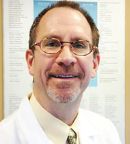
This is a tremendous advance. If we had a drug that could achieve these results we would rush to use it.— Patricia A. Ganz, MD
Tweet this quote
“This is a tremendous advance. If we had a drug that could achieve these results we would rush to use it. This is also personalized medicine that alerts the health-care team when symptoms need addressing. And it is very important that using the app led to appropriate use of scans and tests, which adds value to care,” said Patricia A. Ganz, MD, Jonsson Comprehensive Cancer Center, University of California, Los Angeles.
“In the United States, it would require a change in the team and system to monitor patients. You would need a person in the oncology practice who looked at these responses. This could be part of an effort to restructure how we deliver care,” Dr. Ganz noted.
“[The Centers for Medicare & Medicaid Services] has just announced extra money to develop an experimental oncology care model for bundled payment for services,” she added.
Simpler Communication

Gregory A. Masters, MD
ASCO spokesperson and lung cancer expert Gregory A. Masters, MD, of Christiana Healthcare System, Newark, Delaware, said: “This study confirms the importance of improving communication between doctor and patient. With new technologies like this app, we can make communication even simpler, which is great for doctors and even better for patients.”
Dr. Masters commented that some patients may feel guilty about their lung cancer or may not want to bother their health-care team, thus they don’t report their symptoms promptly. He said that patient engagement is key to improving prompt symptom reporting.
“This study doesn’t prove that an app is the only way to stimulate patient engagement or that it is the best way, but it does show that it is one way to engage patients in their care.” ■
Disclosure: Drs. Ganz and Masters reported no potential conflicts of interest.

